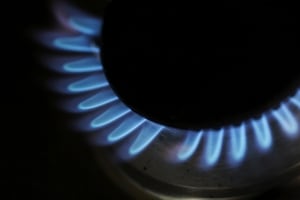 Today there are around 4 million UK households living in fuel poverty. Fuel poverty is classed as people who live on a lower income in a home that cannot be kept warm at a reasonable cost.
Today there are around 4 million UK households living in fuel poverty. Fuel poverty is classed as people who live on a lower income in a home that cannot be kept warm at a reasonable cost.
Fuel poverty is essentially determined by three household elements:
1. Energy efficiency of a home and it’s heating appliances
2. Household income
3. Cost of fuel
In recent years, huge leaps forward have been made in the efficiency of heating appliances. While some high efficiency heating appliances are aimed at buyers with larger budgets, there are many appliances, which are perfect for homes, which demand heating, which are super efficient at a reasonable price. We have a range of electric fires, ideal for this, which not only cost little to run, they are also incredibly efficient.
More info on our electric fires can be found at – https://www.charltonandjenrick.co.uk/products/electric-fires/
The Consequences of Fuel Poverty:
Fuel poverty is linked to ill health, mental illnesses, and debt. It is something, which needs addressing as a matter of urgency. Fuel poverty is also linked to winter mortality, with an increase in drug and alcohol abuse too. According to a study completed by the Association for the Conservation of Energy, living in cold homes kills more people than road accidents, alcohol or drug abuse.
Tackling The Problem:
According to the Energy & Utilities Alliance, fuel poverty could be significantly reduced with 4 changes to government policy:
- Amend the Energy Company Obligation scheme to focus on first time central heating systems for the fuel poor. This could save 139,130 homes a minimum of £922 per year
- Remove the cap on first time connections through the Fuel Poor Network Extension Scheme (FPNES)
- Fuel poverty schemes would be more effective if they operate on a street by street approach
- Better cross departmental data sharing to help identify fuel poor households
The Shocking Statistics:
According to the website – www.endfuelpoverty.org.uk there are a number of shocking statistics
• 4.5 million – the number of households that received energy efficiency improvements during the last Parliament (2010-2015).
• 1 million – the number of households that will receive energy efficiency improvements under Conservative Government plans for this Parliament (2015-2020).
• 78% – The reduction in the number of households that will receive energy efficiency improvements over the next 5 years if only 1 million households are helped.
• 270 – The number of years it would take to make all UK homes energy efficient (EPC Band C) if Government only insulates 1 million homes over the next 5 years with 1 measure each and trend continues.
• 35 – The number of years we have left to de-carbonise UK homes to help avoid dangerous climate change.
• 13 – The number of years the Government have pledged to take in their Fuel Poverty Strategy to make all fuel poor homes energy efficient (EPC Band C).
• 94 – The number of years it will take to make all fuel poor homes energy efficient (EPC Band C) if no new funding is provided.
More is needed to help reduce fuel poverty in the UK. These statistics are just the headlines – we need to be actioning change today to make a change for future generations.








